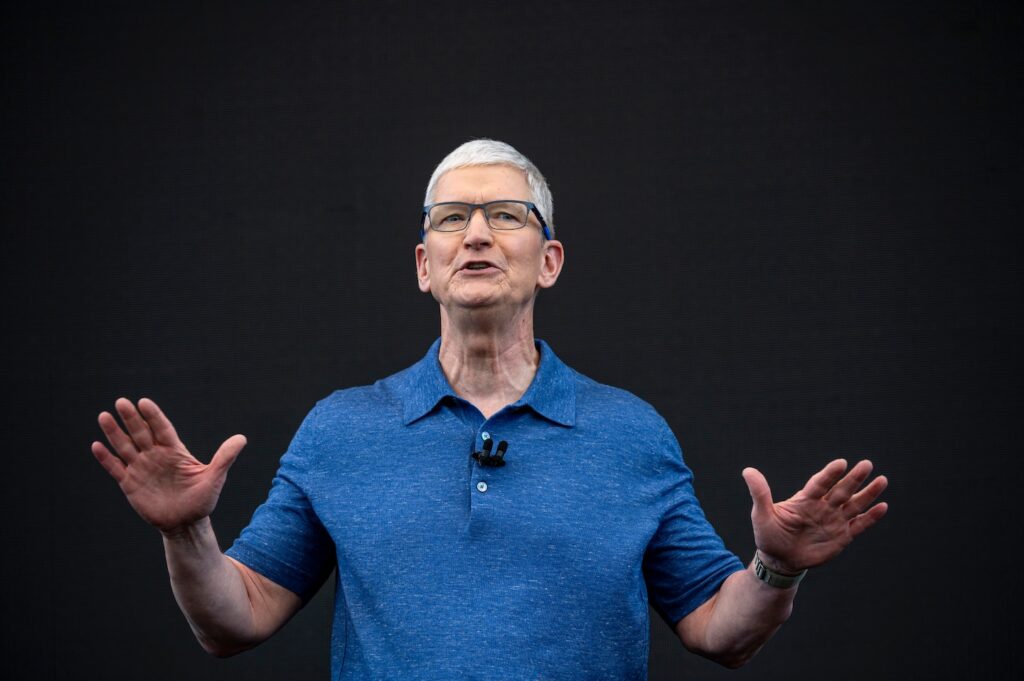The most rational response to Apple's recently announced plans to enter the artificial intelligence market might have been, “Why did it take so long?”
Apple has been on the defensive about its severe lack of AI capabilities for the last decade or so, so it was natural to be skeptical when the company announced its new Apple Intelligence software on June 10 and its plans to connect users with OpenAI's groundbreaking ChatGPT bot.
After all, despite taking an early lead with its AI phone assistant Siri in 2011, Apple was lagging far behind its competitors. As the Financial Times scathingly pointed out, it would be humiliating for the great Apple to release a product that was an obvious knock-off of products already on the market from the likes of Google, Meta and Microsoft. The last of these must have made Steve Jobs turn over in his grave, given his well-known disdain for the PC software makers with which he had long competed.
To make matters worse, Apple's new AI entry isn't ready yet; the company says it won't be released until the fall.
Still, Apple's critics went wild with the news. In the two weeks since the Worldwide Developers Conference, where the new features were demoed, the company's market cap has risen by more than $300 billion to $3 trillion.
What is the market seeing that many aren't seeing? A hardware and software giant with a long history of being extremely good at playing catch-up.
Over the years, Apple has done a great job of telling its customers the story of its constant innovation. But the company's true genius lies in its ability to leverage the ideas and early products of others. This dates back to Apple's early days, when a young Jobs toured Xerox PARC research labs in Palo Alto and came up with the idea of a “mouse” to control an on-screen graphical user interface. This ultimately led to the Macintosh and a global consumer and cultural revolution. Xerox, who first came up with the idea, never commercialized it.
Apple's ability to borrow and improve on what others have started has continued to grow rapidly. What were once tiresomely called MP3 players predate the iPod. Napster predates iTunes, which figured out how to charge for licensed music. Nokia, not Apple, popularized the smartphone, but the iPhone, with its magical touchscreen technology (which Apple also didn't invent), changed that huge market forever (iPhones account for the majority of Apple's 2.2 billion devices in circulation today).
In fact, it's hard to name just one product category that Apple first invented, but it's easy to name ones that Apple has redefined as its own: Amazon's Kindle and Microsoft's Tablet PC came out before the iPad, which dominated the tablet market at the time; Spotify came out before Apple Music, which is now part of Apple's online services empire; and Samsung brought the smartwatch to market before the Apple Watch, which has taken the market by storm as a fashion statement, status symbol, and fitness tool.
That doesn't mean Apple's foray into AI will be easy; there are plenty of well-funded competitors in the space who are much further along. Microsoft shrewdly invested $13 billion in OpenAI, then “acquisition-hired” AI pioneer Mustafa Suleyman (who sold his previous startup DeepMind to Google) to run its consumer AI efforts. Amazon and Google have invested billions in Anthropic, another AI startup that is considered a strong competitor to OpenAI. Meta has some of the best AI talent in the industry and is rapidly integrating AI into its products.
Until recently, no one really knew what Apple was planning with AI, in part because the company is so secretive (it avoids publishing academic papers for fear of revealing its intentions) and in part because it had very little to show: What it showed off at its developer conferences was a set of features that competitors already do, like nifty photo editing, clever email and contacts integration, and traffic map suggestions.
Adoption of OpenAI has also been limited: Apple only refers users to OpenAI in a way that hides user data from the startup. It's a shocking fact that Apple doesn't have technology comparable to ChatGPT.
In short, the enthusiasm for Apple's new strategy boils down to three elements, none of which include a demonstration so far of what the tech industry calls a killer app.
First, Apple has a track record of playing the copycat game. If Apple can successfully combine what it sees in the market with what its creative engineers produce, good things will happen. Second, there's scale. Did I mention 2.2 billion devices? Apple directs its technology toward iPhones and other products, sometimes preventing competitors from using the same gadgets. (This is why the federal government filed an antitrust lawsuit against the company.)
Finally, there's the intentional part. Apple is no longer holding back. It's acknowledging that AI isn't just a bright shiny object, but an upcoming product category that can't be ignored. In the past, with a few exceptions, when Apple has thrown its all into a new technology, the market has changed forever, and usually for the better.



